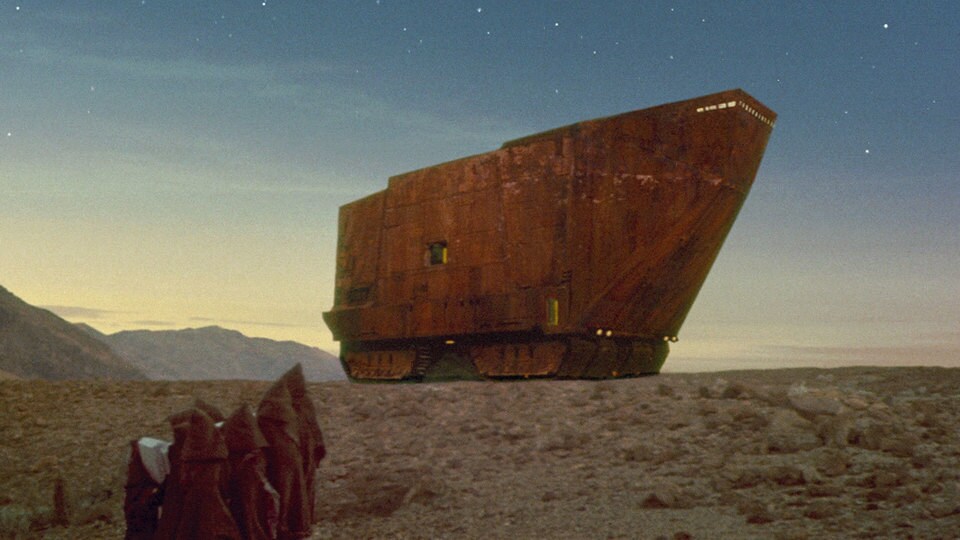Academia is often a waiting game. Degrees take time to accomplish, hires and fires are slow, and any kind of change is incremental. Despite the speed of information in 2022 (and beyond), the institutions of learning move more like a Jawa’s sandcrawler: Full of valuable stuff but frequently slowed down by their own bulk.
Since my successful dissertation defense during the first week of November of last year, I’ve been waiting for my diploma to show in the mail. Following weeks of reminder e-mails to the registrar and graduation services, this paper validation of the past 4.5 years of work arrived at my house. I came home to find the following:
To say the final ceremonial step in my doctoral work was anticlimactic would be an understatement. It actually looked like the mailman had flung it like a frisbee, releasing it to sail across my lawn to rest on my porch. I could picture “graduation services” driving through neighborhoods on floats, zipping off diploma envelopes at each house like candy for the kids during Forth of July parades!
T.S. Elliot said that the world would end not with a bang but a whimper. In my case, my doctoral journey ended not with pomp, loud music, and bright lights, but with a haphazardly placed plain white envelope unceremoniously left on my porch like an overdue water bill. In some ways, it was like finishing four courses of one of the most important meals of your life, only to receive a Tootsie roll for dessert.
Despite my disappointment at this final hallmark, I actually laughed. All the years of writing and citing, the sacrifices of family time, the stress, and now the looming student loan payment were brought to a conclusion with a haphazardly flung plain white envelope sitting on a banister, waiting for the first person to arrive home and pull it out of the weather.
I started thinking about the doctoral journey. Why had I done it in the first place? Directly, it was part of my requirement as a full-time faculty member at my university. During my interview process, the committee asked me, pointe blank, if I were committed to getting those letters and contributing to the overall credibility of the department. I affirmed my answer and my commitment.
Despite the utilitarian origin of my choice to start the path, namely access to academic promotion and rank, the past four years truly had transformed me. They made me a better writer and researcher. The path connected me to friends and mentors who are now opening doors (and parts of my mind) every day. I’m more curious about the world around me and excited about exploring my passions than ever!
Lots of big events in our lives end with the mundane. Funerals and divorces often “become real” when people come home to empty houses; regardless if the loss was unwanted or desired, the change in life is apparent in the common silence. A road trip comes to conclusion at the destination (and the conversations along the way are almost always better than the terminus). The biggest blockbuster movies still end with plain text scrawling across the screen, letting us know who made the part we cared about (the actual movie) possible.
Three weeks into my first semester teaching without the burden of course work, I have felt a new energy take hold of me. I’m more ready to engage from the moment class starts; the content is rolling off my tongue in a way I’ve never experienced. While I’ve loved being a teacher my entire career, there’s an energy about being in the classroom that is new; the spring of a younger man’s step has landed in my legs while leaving the middle-aged brain intact. Being simultaneously more excited and more calm might just be what this time in my life is supposed to be about.
As teachers and, by default, role models, we often encourage our students to seek their “best version of themselves.” Work on the parts you aren’t happy with. Embrace your strengths. Know what you are “about.” At nearly 49, I’m starting to feel like “the best version” of me is emerging, thanks in no small part to finding out what I was capable of over the past four and a half years. Had I been earlier on in my career, I’m not sure that I could have walked the path while balancing my work responsibilities and family life. Had I waited, I fear that my fading youth would have lacked the resilience and energy to keep up. In hindsight, it seems that I arrived at my doctoral path at the “sweet spot” in my life.
White envelopes showing up in the mail usually mean endings. The end of a monthly billing cycle. The end of an insurance term. Maybe even the end of a transformational period in a person’s life. The paper in the envelope isn’t the important part; that material, after all, is simply the record. The receipt. The resources enjoyed, the time spent, the trips themselves…those are the valuable parts. Those are the things that become part of us and change us from the inside out. Regardless of the ending, the ceremonies happen while we’re living them.




Comments
Post a Comment